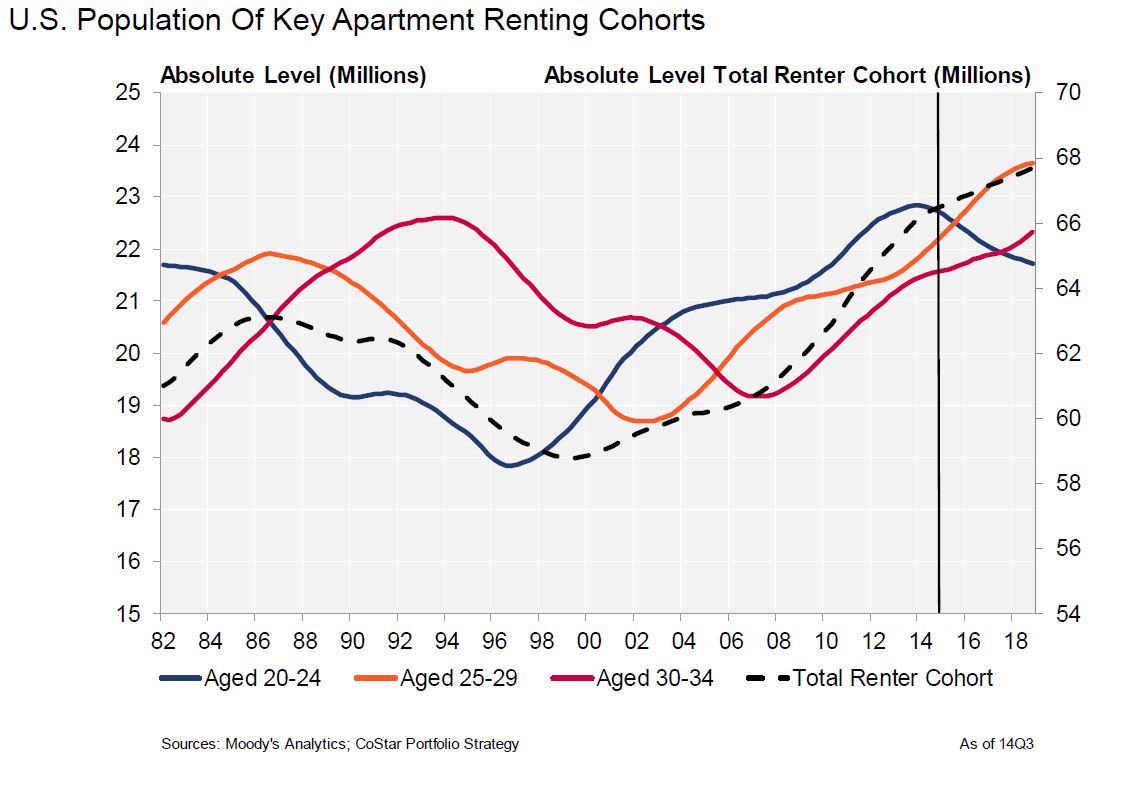Just as every individual is unique, so are housing preferences. Most within Generation Y (aka millennials) are graduating college, moving off their parents’ sofa and actively tackling the decision about whether to rent or own.
Not every millennial has a job in this sluggish economy. Those who do have jobs are relatively new to the workforce and are making entry level wages. With a sharp decline in GDP growth in the first quarter and lackluster growth in Q2 and Q3, the economy hasn’t provided enough motivation for Generation Y to take control of their long-term housing decisions. So, bunking up with an old college roommate or buddy might appear to be the only available option until more favorable tides come to shore.
There are pros and cons to deciding to rent. Data prove that Gen Y has consistently made the decision in favor of renting since the great recession. One of the reasons, I believe, is that millennials have made a psychological shift in housing preferences. Owning a home in the suburbs isn’t a dream of millennials; it’s their parents’ dream.
Millennials don’t want to be in a quiet neighborhood setting in the ‘burbs. They want to be in the heat of the action inside the urban core. The ability to live, work and play in a high density environment surrounded by nightlife, restaurant, and entertainment is paramount to this generation. Between 2010 and 2011, the population in the 27 largest U.S. cities grew faster than the surrounding suburbs for the first time since the1920s. Millennials, who number approximately 81 million, are the primary drivers of this trend. This generation of twenty and thirtysomethings are willing to spend up to 69 percent of their income on rent, which is more than 20 percent above the national average.
For Generation Y, which values flexibility and doesn’t seek out responsibility, renting is the answer. Among other things, the ability to lock and leave without the headache of maintenance is appealing. Apartment owners are now specifically catering to Gen Y renters by providing every service and amenity to keep them entertained. Certainly, baby boomers did not live in apartment communities with valet trash, a Starbuck’s coffee bar, 24/7 on-call maintenance and rooftop pools. Can you blame millennials for loving this lifestyle? Moody’s Analytics anticipates a long, stable ascent of total renters into the population over the next four years.
There are, of course, other reasons impacting millennials’ attitudes toward renting versus owning. Among these are:
- Witnessing an older sibling lose their investment on a condominium purchase
- Seeing home values go down the drain
- No available financing
- Desire to live, work and play in a defined area
- Flexibility
- Maintenance-free lifestyle
The graph above clearly demonstrates the rise of total Gen Y renters. What’s interesting is the dramatic growth of those aged 30 to 34, which is consistent with later household formation. Millennials are hitting the “delay” button on getting married, starting a family and, in some respects, growing up.
We’re averaging over 1 million new absolute renters into the population since 2008. CoStar anticipates this trend will only become stronger heading into 2018.
Ironman, barbecue champion and deal enthusiast, Will is also the Atlanta-based leader of the Southeast Multifamily Advisory Group of Colliers International. Will brings several years’ experience in the industry, primarily focusing on multifamily investment services and capital markets.

 Will Mathews
Will Mathews


 Coy Davidson
Coy Davidson
 Lex Perry
Lex Perry